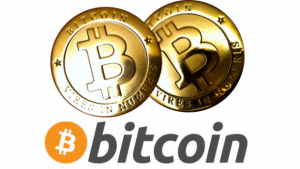Kim Kardashian Fined in Crypto Promotion Case
The SEC fined Kim Kardashian $1.26 million in a settlement of charges related to her promotion of EthereumMax. It alleges that Kim Kardashian promoted EthereumMax’s EMAX tokens on her Instagram account without disclosing that she was paid to promote a security.
As part of the settlement, she has to give up the $250,000 payment she received to promote EMAX, plus interest and a $1 million fine.
“This case is a reminder that, when celebrities or influencers endorse investment opportunities, including crypto asset securities, it doesn’t mean that those investment products are right for all investors,” SEC Chair Gary Gensler said in a statement published on the SEC’s website.
The investigation into EthereumMax is still ongoing and Kim Kardashian agreed to cooperate. The EMAX token has lost 97% of its value since it was released but, in the weirdness of the crypto world, pumped by 40% due to the fine levied against Kim Kardashian. Discord members called it official recognition that EMAX counts as a security.
The issue with the Kim Kardashian and EthereumMax case revolved around required disclosures for advertising investment options. Most social media promotions simply sell retail products and services like VPN subscriptions or toys. The ads on the sidebar of this blog will earn me a percentage of sales if you click on the link and then buy something (and, yes, I should emphasize that those are advertisements lol).
Promotion of investment options are different because people are putting their money on the line with no guarantee that they’ll get anything in return. It’s not even “I invested in Dogecoin during last year’s All-Time High and all I got was this lousy T-shirt.” If the investment tanks as badly as EthereumMax did, all that happens is that its bagholders lose their money.
Kim Kardashian’s mistake was in failing to fully disclose how much she was paid for promoting EthereumMax. In her Instagram post, she said, “This is not financial advice, but sharing what my friends just told me about the Ethereum Max token!” She did include the #ad hashtag, which would normally be required for things like promoting T-shirts or those cool planetary globes. Those products might be somewhat cool and have a small monetary value when they get sold in a garage sale or thrift shop, but they aren’t securities.
What about the Gemini Exchange ad on this blog’s sidebar, though? Well, I should note that it is an exchange where you can buy digital assets and some of them might be securities. Whether they actually meet the conditions of the Howey Test, and therefore qualify as securities, may occasionally be subject to the outcome of court battles. Eyeballs are on SEC v. Ripple with all its unpredictable twists and turns right now. However, it’s often safer to assume that they are securities if you aren’t sure.
I probably won’t get in trouble for promoting an exchange instead of a specific cryptocurrency or crypto-token for the same reason that Matt Damon, Larry David and Tom Brady didn’t when they promoted exchanges. They weren’t directly promoting specific investment options. Just exchanges where you can buy what you want without me or anybody else making recommendations about specific recommendations.
The SEC and Gary Gensler published separate warnings not to make investments based purely on celebrity recommendations. The SEC’s recommendation, published in November 2017, focused on celebrity-endorsed ICOs. Gensler’s more recent warning was published on YouTube on October 3, 2022, and can be seen in the below video.
Of course, Kim Kardashian isn’t the only celebrity who ran into trouble when it comes to promoting crypto. Steven Seagal fled to Russia to escape a fine levied by the SEC in the aftermath of his promotion of the fraudulent Bitcoiin2gen. He was last seen helping Russia spread propaganda in relation to Russia’s invasion of Ukraine.
The SEC previously charged professional boxer Floyd Mayweather and music producer DJ Khaled for their role in promoting Centra Tech. Similar to the charges against Kim Kardashian, the SEC alleged that the two celebrities failed to disclose payments from Centra Tech for their promotion. The SEC also alleges that Centra Tech conducted a fraudulent ICO.
The list, of course, goes on and on. Celebrities think they can make big money by becoming crypto influencers and wind up getting fined by the SEC if they didn’t cover their bases. Even if they did, they might get made fun of like Matt Damon did after he appeared in Crypto.com’s Super Bowl commercial and then crypto markets tanked. (Personally, I think that was just rotten luck.)
Kim Kardashian’s mistake was probably just an easy one to make. However, it earned the SEC’s attention through her social media team’s lack of attention to detail and cost her more than one and a quarter million dollars.







